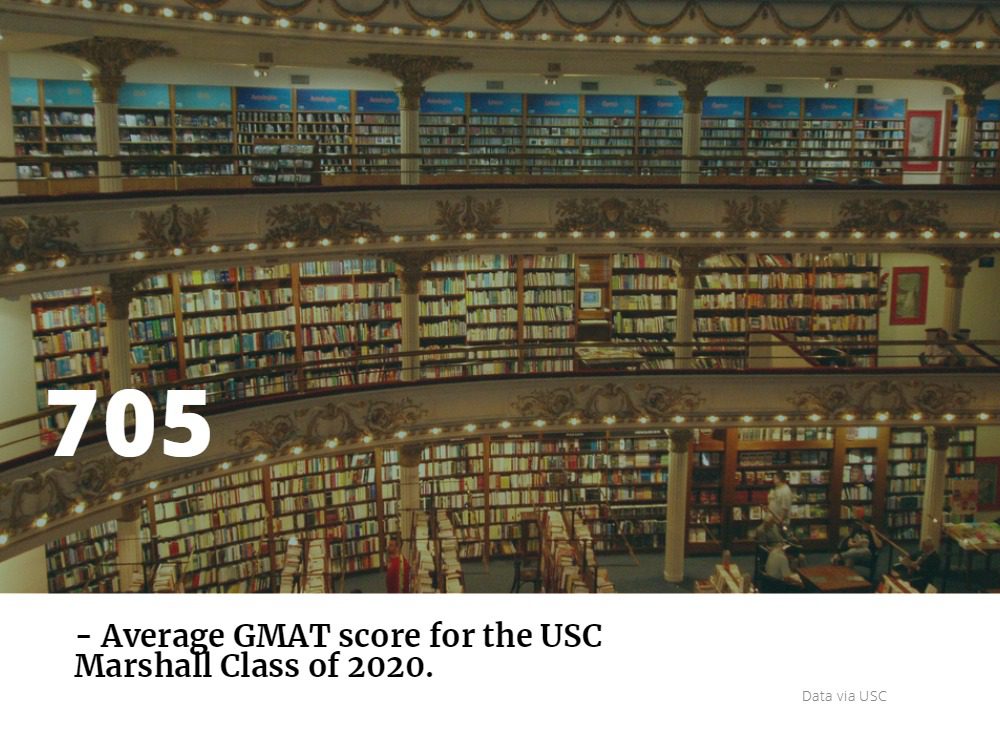Zicklin Ranked Third Nationwide for Women in IS

Sponsored Content
The Chronicle of Higher Education ranked the Zicklin School of Business at Baruch College third among 253 institutions nationwide for enrolling and graduating women in computer science and information systems. The percentage of female CIS undergrads at Zicklin has continuously increased over the last few years, from 21.6 percent in 2016 to 32.2 percent in 2019.
“The Paul H. Chook Department of Information Systems and Statistics has supported the creation of a student club, FemCode, that focuses on women in tech; we have made efforts to attract more female professors, both full time and adjunct; and we are working to increase the participation of women in computing and IT,” said Marios Koufaris, Ph.D., chair of the Paul H. Chook Department of Information Systems and Statistics.
In addition to the CIS major for undergraduates, Zicklin offers a Master of Science in Information Systems as well as a newly launched MS in Business Analytics and an Executive MS in Information Systems. The Zicklin School of Business leads the way in enrolling and graduating women in computer science and information systems—well-paying fields in which women have long been underrepresented.
Learn More:
MS in Business Analytics
MS in Information Systems
Executive MS in Information Systems
How Woman Can Close the Pay Raise Negotiation Gap, and More – Chicago News

Let’s explore some of the most interesting stories that have emerged from Chicago business schools this week.
Are You Willing to Stretch the Truth While Negotiating? – Kellogg Insight
Research trends have found that men are more willing to lower personal ethical standards during negotiations than women when it comes to pay raise negotiation.
However, a new study from Northwestern University Kellogg School of Management‘s Maryam Kouchaki, Assistant Professor of Management and Organizations, finds that there’s a situation that throws a wrench in the works: “when women negotiate on behalf of others.”
Kouchaki and her UC Berkeley co-author Laura Kray write:
“A woman who is negotiating on behalf of someone else will lie at roughly the same rate as her male counterpart. But, if she is negotiating on her own behalf, she is much less likely to deceive. Women in advocacy roles [get] as much done as men.”
You can read more about Kouchaki’s pay raise negotiation research here.
Will EU Migrants Pay Their Fair Share of Taxes? – Chicago Booth News
The Chicago Booth Initiative on Global Markets surveyed its European Economic Experts Panel, which is comprised of “50 economists and top researchers,” about whether recent European migrants are likely to “contribute more in taxes paid than they receive in benefits and public services.”
LSE’s Daniel Sturm writes, “Being younger and typically better educated, their [the migrants’] fiscal contribution tends to be positive as suggested by recent research for the U.K.”
Goethe University Frankfurt’s Jan Pieter Krahnen agrees:
“As [the] employment rate among migrants goes up over time, and much of taxation is indirect anyway, chances are that the statement comes true.”
Director of the European IGM Panel Christian Leuz is less optimistic. “[It is] too early to tell. Labor market outcomes are often worse for [a] long time. Demographics are [a] plus. Much depends on fast integration into [the] labor market.”
You can read more from the panel’s discussion here.
Faculty and Students Team Up with Northern Illinois Food Bank – Quinlan School of Business News
Loyola University Quinlan School of Business’ Urban Social Benefit Incubator teamed up with the Northern Illinois Food Bank to develop a “new system for serving its families” to replace the precarious first-come, first-served process it currently employs.
Quinlan is proposing “an online ordering system that allows for pick-up at strategic locations in the community, such as a grocery store.”
Harry Haney, Associate Director of Quinlan’s Supply and Value Chain Center, who is helping spearhead the initiative, writes:
“It’s important to us to serve nonprofits and social enterprises to help make a difference in the community. Plus, our students are learning the real-world side of business and gaining additional educational exposure.”
You can read more about Loyola’s food bank initiative here.
Inside the History-Making Full-Time MBA Class of 2020 at USC Marshall

Announced at the end of July, the incoming full-time MBA Class of 2020 at the USC Marshall School of Business is making headlines across the country. Graduating exactly 100 years after the business school’s first cohort, the USC Marshall MBA Class of 2020 has made history as the first cohort at a top-ranked business school to feature more women than men.
Even without history-making demographics, the new 2020 cohort is a diverse group. Two-hundred and twenty one of the 2017 applicants were accepted, making an acceptance rate of 28 percent. The students come from a wide variety of backgrounds, and though the majority (25 percent) had an undergraduate major of business/commerce, also present are students with undergraduate degrees in engineering/computer science (18 percent), the humanities (17 percent), and economics (16 percent). At an average age of 28 years, the new USC students have an average of five years of work experience.
A look at the academic profile of the typical USC student reveals the programs competitive nature and commitment to rigorous academics. On average, incoming students had an undergraduate GPA of 3.50 and a GMAT score of 705.
In addition to gender, diversity represents itself in the 2020 cohort through the 30 percent of international students, representing 31 different countries around the world, including Iran, Israel, Ethiopia, Egypt and Pakistan, to name a few. About 21 percent of students from the United States are also made up of underrepresented minority groups.
Of course, the school’s achieving of gender parity is probably the most notable thing about this incoming class. Women have always been an underrepresented group within business and business schools—according to the AACSB, between 2012 and 2017 the number of women working towards full-time MBA degrees was below 38 percent. This reveals a huge contrast for women MBAs versus those in other graduate degree programs, where women make up over 50 percent of most graduate classes.

An overall look at the USC Marshall MBA Class of 2020 already reveals the ways more women in a program can have a broader impact on the school and the student’s future careers. “This year’s applicant pool was the strongest in our program’s history,” commented assistant dean and full-time MBA director at Marshall, Evan Bouffides. “They brought the highest GMAT score and the highest average GPA. The women in particular were extraordinarily well prepared.”
There may be a number of reasons why the number of women in MBA programs has historically remained low. Different studies have looked at factors like the time it takes to complete an MBA degree, work experience required, and the overall return on investment. Reasons may also reflect the gender pay gap, which makes the return on investment significantly lower for women, who studies show could make anywhere from 3 percent to 36 percent less than their male counterparts.
YOU MAY ALSO LIKE: The Best U.S. Employers for Women
Thankfully, schools like USC understand the benefits that women MBA graduates can add both to the school and workforce. Over recent years, the university has taken purposeful measures to increase gender diversity among applicants, such as programming focused on women. The investment of creating diversity at business schools mirrors an overall focus on diversity throughout the business world, which means that schools like Marshall can get ahead of the game in creating a diverse and appealing talent pool for employers.
“With more than 50 percent of our 2020 class women, it gives us a talent pipeline that employers are hungry to tap into as they go about increasing the diversity of their executive staffs,” said Mark Brostoff, Assistant Dean and Graduate Career Services Director at Marshal. “Recruiters are very happy with this great news.”
From Just One Woman to 39 Percent of the Class—and Other Ways LBS Has Changed Over the Past 50 Years

The 2017-18 academic year marks the 50th anniversary of the MBA program at London Business School (LBS). Since 1968, the school has offered a two-year Master of Science (MSc) in Business Studies degree program—the original MBA—and has continuously refined its offerings since that time. In celebration of the 50-year mark, LBS is looking back at how far the program has come.
The Beginning
In 1966, two years after London Business School opened its doors, the school launched a two-year Master of Science (MSc) in Business Studies. The first class consisted of 35 men and just one woman, with the average age around 25 years old. The goal of the two-year degree was to prepare students for employment. In fact, according to the website, employment was seen as “one of the most significant aspects of the school’s progress at this stage of its development.”
After graduation, most students joined manufacturing firms, and a few went into merchant banking, management consultancy, and advertising. Their job functions included marketing and financial executives, planning personnel, and personal assistant roles.
As for the feedback on the first year of study, a report on the class stated, “The overall academic performance of the students during the year has been more than satisfactory. The course of studies is arduous and the number of hours of work required is much above average, imposing a considerable workload both on students and staff.”
The Early Years
In the early years of the program, growth was slow but steady. In 1971, the class size grew to 86 students and by 1975, 108 students were admitted, including 16 women. Throughout this time, LBS made various modifications to its program.
- In 1973, LBS introduced the International Management Program, which gave 10 students the change to study abroad in Paris or at New York University.
- In 1978, the International Management Program expanded to include Harvard, Stanford, Wharton, Chicago, and top European institutions.
The 1980s
The 1980s were a time of change for LBS and the MBA program. During these years, banking and finance overtook manufacturing as the top industry for graduates. In addition, LBS continued to increase its international reputation; about half of its class comprised non-British students by the end of the decade, with more 30 nationalities represented. Most importantly, the Class of 1987 was the first to be awarded an MBA rather than an MSc degree. In an annual report, the school stated, “This more accurately and effectively conveys the spirit of the program, and the type of qualifications our students are aiming for.”
- In 1982, LBS introduced a new part-time master’s program. The first class accepted 60 people and allowed students to complete their studies over two and a half to three years while still working.
- In 1984, three more U.S. schools joined the International Exchange Program including Dartmouth Tuck, MIT Sloan, and Northwestern Kellogg.
The 1990s
In the 1990s, LBS adopted a more flexible format for its MBA program. The school added increased training in “soft skills” and introduced computer-based management simulation games. The class size also increased to 271 students, with 79 percent of students coming from outside the United Kingdom. Consulting became the top choice for graduates, and manufacturing shrunk to just 11 percent.
- In 1992, LBS introduced a language requirement where students must be fluent in English and one other language to graduate. In addition, the part-time master’s was re-launched as the Executive MBA.
- By 1996, entrepreneurship became an important part of the program, and the school launched several electives with an entrepreneurial focus, including “Small Business Management” and “Financing the Entrepreneurial Business.”
- 1999 was the first Financial Times Global MBA ranking, and LBS ranked #1 in Europe and #8 in the world—the only non-U.S. school in the top 10.
The 2000s
By the 2000s, LBS had become a global leader in MBA education—and in 2009 it became the first non-U.S. school to top the Financial Times ranking. The MBA program was reformatted for increased flexibility, allowing students to graduate in 15 to 21 months. The class size also increased to 315 students, with 89 percent of the class from 59 countries outside the United Kingdom.
- In 2001, LBS ranked as the best Global MBA by the Financial Times, and Forbes ranked LBS as #1 in Europe and #2 in the world for return on investment.
- In 2003, LBS became the first European school to join the Forté Foundation to increase women in business, and in 2005, women made up 22 percent of the class.
The 2010s
In the last decade, London Business School once again revised its MBA program to give students even greater flexibility. The school also continued to increase its size, welcoming 468 students by 2018—12 times the size of the first class in 1968. In addition, women now make up 39 percent of the MBA class, and students represent 77 different nationalities.
- In 2010, LBS started its Incubator Program to help entrepreneurs. As of 2017, 58 businesses have completed the incubator, raising more than £31 million and creating 440 full-time jobs.
- In 2012, LBS launched the Global Business Exchange (GBE), giving students the opportunity to spend a week in another country with options ranging from South Africa to the United States.
- In 2016, LBS completed its first fundraising campaign, raising £125 million.
To learn more about the 50th anniversary celebration of London Business School’s MBA, visit the school website.
This article has been edited and republished with permissions from our sister site, Clear Admit.
YouTube CEO and UCLA Anderson Alum Susan Wojcicki Responds to Google Memo

Earlier this month, Google found itself in the midst of controversy after an internal memo from now-former employee James Damore was released to the staff. His out-of-nowhere diatribe claimed, more or less, that women are less biologically capable of being software engineers than their male counterparts. The document, titled “Google’s Ideological Echo Chamber,” was later released to the public, instantly causing scrutiny. Continue reading…
Babson Expands Entrepreneurial Opportunities for Women MBAs

While more women than ever are earning MBAs, there’s still a lot to be done to advance the role of women in business. Though the average enrollment of women in full-time MBA programs at 36 top business schools climbed from 32 percent to 36 percent between 2011 and 2015, that growth hasn’t necessarily been reflected in the workforce yet. Women occupy only 22.9 percent of board positions for Fortune 500 companies and only 6.4 percent of CEO positions.
Babson’s Women Innovating Now (WIN) Lab is part of that school’s effort to bridge this gap and increase the number of women leaders in business. Continue reading…
